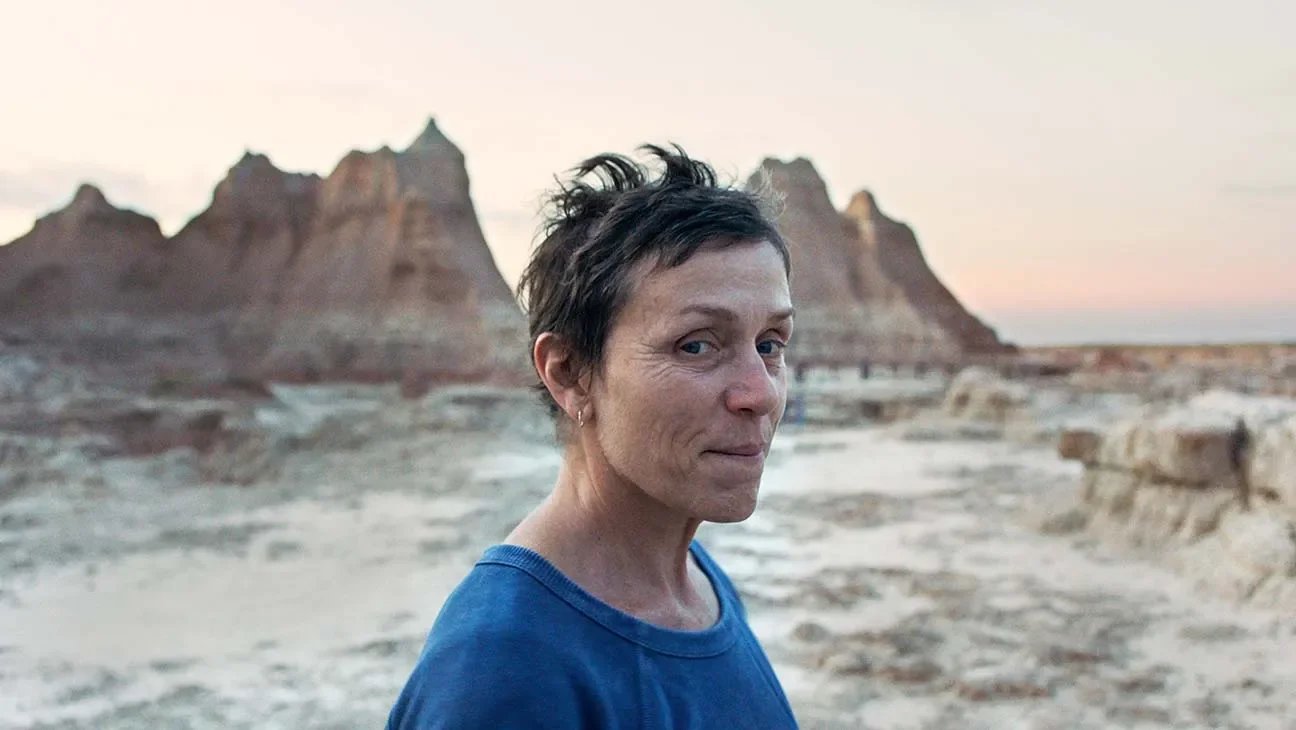
Middle America is not red in Nomadland
by Kathia Woods
How does a director not born or raised in this country understand the American western heartland better than the political pundits screaming at us for the last four years? Director Chloe Zhao, fresh of her critically acclaimed film The Rider, gives a beautiful and intelligent insight to a story about working-class America that often gets lost.
Economic hardship, a desire for independence, and self-discovery are some of the themes explored in Nomadland. Frances McDormand portrays Fern, a woman that is experiencing misfortune after misfortune. First, the company she and her husband fold. He dies, and the town, due to lack of economics, loses its zip code. As it is common with many people with medical bills and lack of work, financial collapse follows. Fern decides to live as a modern-day nomad. She wanders from place to place, living out of her cleverly crafted van finding work wherever she can earning an honest day's pay. On the way, she meets fellow nomads David (David Strathairn), Linda, Charlene, and Bob. They teach her the ways of this newfound existence. The beauty of this film is that Zhao captures this part of American life without judgment.
We see a community having an active voice in their mobility. Frances is the vessel that Zhao uses to reflect that point of view. The film works because McDormand is fantastic. We want to know everything about Fern. We are willing to learn and understand the journey because we trust her performance. The beautiful cinematography complements this journey. One thing one can count on in a Chloe Zhao film is that she will give you stunning scenery. Once again, these beautiful shots come to us via Joshua James Richards, who previously worked with Zhao on The Rider. We, the audience, are privy to how America views the working class. They are deemed eccentric, lazy, or dismissed. Fern is an intelligent woman that doesn't 'want a handout but the right to earn a living. Another important point made in Nomadland is how easily our society dismisses older people. People that are over 50, however not yet 70. An example of this is when Fern goes to an employment agency to ask for help; the Agent doesn't take her seriously; she tells her to take early retirement. She ignores Fern's needs nor assessed her skills. She sees an old lady, not a college-educated woman who taught English or was an administrative assistant. The other standout in this film, although in a smaller capacity, is David Strathearn as David. He, like Fern, he is living off the grid. They form a camaraderie through shared experience. If Fern is our anchor, David is the free spirit. He has a family that cares for him, but he doesn't want to be confined by their rules. He's the closest person Fern has allowed into her inner sanctum. This film doesn't have much action, but a more significant conversation is taking place. In this particular case, a conversation that requires patience and good listening skills, two things we Americans aren't always willing to do. Nomadland cements what many of us already knew about Zhao that she is a gifted director. McDormand may join Meryl Streep as a three-time Oscar winner because she's that good. Everything in Nomadland is purposeful. It's the type of film that will stay with you and hopefully spark an ongoing conversation.
